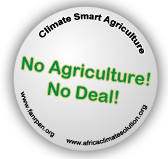 ACCID RSS newsfeed ACCID RSS newsfeed
Climate talks run into overtime as nations clash
13 December 2014, Time Live
URL: http://www.timeslive.co.za/scitech/2014/12/13/climate-talks-run-into-overtime-as-nations-clash
UN climate talks spilled into an extra day Saturday as negotiators battled in Lima to end a standoff between rich and developing nations on the underpinnings of a world carbon-cutting pact.
A years-old dispute over sharing responsibility for curbing greenhouse gases reemerged to drive the 12-day negotiations into a familiar end-phase of poker-like holdout, clouding prospects for the ambitious environmental accord.
The talks had been scheduled to end at 6:00 pm (2300 GMT) Friday, but ran into the small hours as officials and ministers horse-traded over elements of a draft outlining a variety of countries' approaches.
They have to whittle it down to a consensus text to guide a process next year of declaring national pledges for curbing Earth-warming fossil fuel emissions.
"We are almost there. We need to make just a final effort," Peruvian Environment Minister Manuel Pulgar-Vidal pleaded with negotiators on Friday afternoon.
"We need to take political decisions."
Underlying the gridlock is the principle of "differentiation" -- a bugbear of the years-long attempt to bring all the world's nations into the fold of a single mechanism for braking planet-threatening climate change.
Developing nations insist the West must bear a bigger burden for carbon cuts, having started decades earlier to pollute their way to prosperity.
But rich countries point the finger at developing giants like China and India furiously burning coal to power their rapid growth.
Developing nations further demand that pledges incorporate not only action on reducing carbon emissions, but also financial help and adaptation aid to shore up their climate defenses.
Pledging rules must be finalized in the Peruvian capital to allow countries to start their submissions from the first quarter of next year.
These national contributions will be at the core of a global climate pact that nations have agreed to sign in Paris in December 2015, to enter into effect by 2020, seeking to limit average global warming to two degrees Celsius (3.6 degrees Fahrenheit) over pre-Industrial Revolution levels.
Campaigners in Lima said they feared a weak-willed compromise.
"The latest text which countries are working on has been stripped down to its bare bones to accommodate the whims of the lowest common denominator," Christian Aid's Mohamed Adow said.
"Right now we are facing the prospect of being no further forward than we were when we left last year's meeting in Warsaw."
Green group WWF, also observing the annual negotiations round, said the new draft "contains a mixed bag of options."
"It's crunch time for negotiators here in Lima and everything is still up in the air," WWF said.
The goal of concluding a global pact was set down in Durban in 2011, but negotiations on its scope and scale have been a minefield.
"Some key elements fell to the cutting room floor and are not in the text at all," Union of Concerned Scientists analyst Alden Meyer said of the latest draft.
Dropped text included language on absolute, economy-wide mitigation targets for developed countries.
The current range of options on key points "go from weak or minimal, to barely acceptable, to OK," said Meyer.
And he predicted differentiation would remain a tough issue, having been "pretty much scrubbed out of most of the text."
"That may not be acceptable to some" developing countries, he said.
Another major blocking point is whether or not there should be a process to assess the pledges' global impact on the 2 C goal -- with China a vocal opponent.
Negotiators must also emerge from Lima with a broad outline for the pact itself, to be further developed in the months ahead.
Scientists say 2 C warming is relatively safe but no guarantee against damage to the climate system.
On current carbon trends, they say, the planet is on course for around 4 C warming this century, dooming future generations to a planet of worsening drought, flood, storm and rising seas.
The UN's Intergovernmental Panel on Climate Change says emissions must be slashed by 40-70 percent by 2050 from 2010 levels and to near zero or below by 2100 for any chance at 2 C.
|

